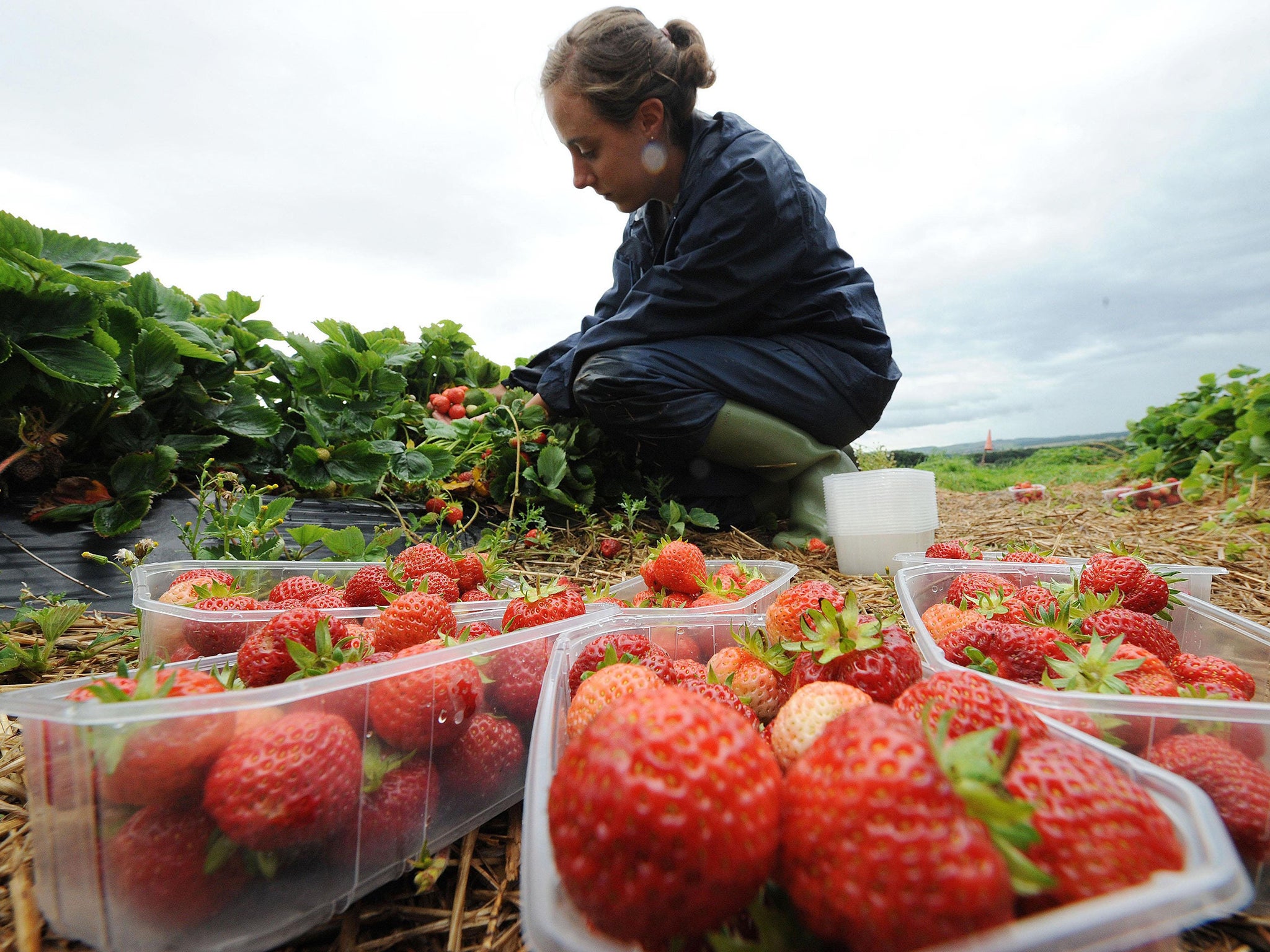Brexit: Farmers allowed to recruit 2,500 migrants a year under new government plan to plug seasonal workforce gap
Non-EU nationals who travel to UK to work on fruit and vegetable farms will be able to stay for six months

Your support helps us to tell the story
From reproductive rights to climate change to Big Tech, The Independent is on the ground when the story is developing. Whether it's investigating the financials of Elon Musk's pro-Trump PAC or producing our latest documentary, 'The A Word', which shines a light on the American women fighting for reproductive rights, we know how important it is to parse out the facts from the messaging.
At such a critical moment in US history, we need reporters on the ground. Your donation allows us to keep sending journalists to speak to both sides of the story.
The Independent is trusted by Americans across the entire political spectrum. And unlike many other quality news outlets, we choose not to lock Americans out of our reporting and analysis with paywalls. We believe quality journalism should be available to everyone, paid for by those who can afford it.
Your support makes all the difference.British farmers will be allowed to recruit 2,500 non-EU migrants a year under a new government pilot that will help alleviate an anticipated shortage of seasonal workers after Brexit.
The National Farmers Union has called for a special arrangement for short-term workers amid growing concerns over crops being left to rot on British farms because of a shortage of labour.
Under the new scheme, which will run for two years from next spring, non-EU nationals who travel to the UK to work on fruit and vegetable farms will be able to stay for six months before returning.
Industry bodies estimate the agriculture sector relies on a 75,000-strong temporary migrant workforce.
Unveiling the plans, Home Secretary Sajid Javid said: "British farmers are vital to the UK's economy - and the government will look to support them in any way we can.
"This pilot will ensure farmers have access to the seasonal labour they need to remain productive and profitable during busy times of the year.
"I am committed to having an immigration system that reduces migration to sustainable levels, supports all industry and ensures we welcome those who benefit Britain."
Environment Secretary Michael Gove said the government has listened to the "powerful arguments" from farmers about the need for seasonal labour to keep the horticulture industry productive and profitable.
He said: "From lettuce in East Anglia to strawberries in Scotland, we want to make sure that farmers can continue to grow, sell and export more great British food.
"This two-year pilot will ease the workforce pressures faced by farmers during busy times of the year.
"We will review the pilot's results as we look at how best to support the longer-term needs of industry outside the EU."
The news was welcomed by Minette Batters, president of the National Farmers' Union, who described it as a "major victory".
She said: "It follows two years of evidence from the NFU, growers and MPs that a shortage of workers has been hampering food production, and is recognition from the Government that British horticulture is a successful, thriving sector which faces some unique challenges but is capable of producing more great, healthy British fruit and vegetables for people to eat.
"Farmers and growers have seen worker availability tighten significantly in recent years, with the shortfall so far this year reaching 10 per cent.
"Growers will take great confidence in knowing that they will have access to workers for the 2019 harvest, during what have been extremely testing and uncertain times for the sector."
The first seasonal agricultural workers scheme was introduced in response to labour shortages after the Second World War.
Under the last such programme in the UK, fruit and vegetable growers were allowed to employ migrant workers from Bulgaria and Romania for up to six months at a time.
The route was closed at the end of 2013 when restrictions on nationals of the two eastern European countries working in Britain ended.
Two scheme operators will run the new pilot, overseeing the placement of workers and ensuring they reach their place of employment and leave the UK at the end of their visa.
The Home Office said it would be a tightly controlled regime, with return rates carefully monitored and provisions in place to close the route if it presents a threat to immigration controls.
Press Association contributed to this report
Join our commenting forum
Join thought-provoking conversations, follow other Independent readers and see their replies
Comments